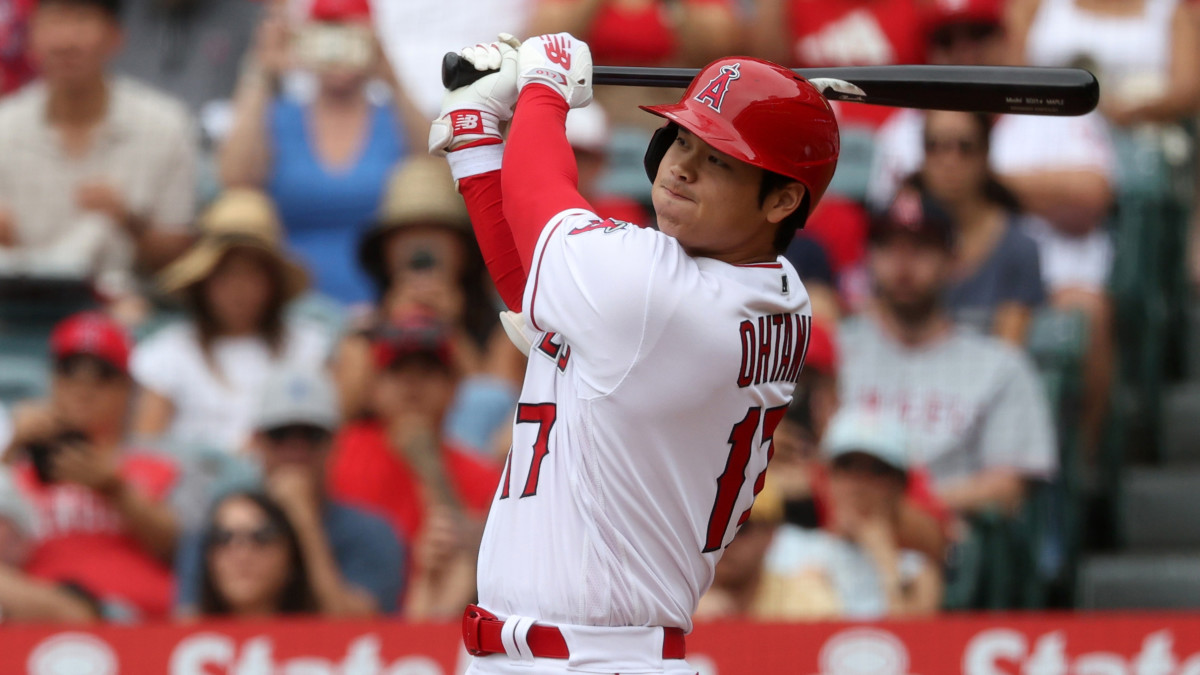The Angels’ Deadline Strategy Is an Exercise in Idealism

What is the right question to ask about the Angels’ deadline strategy?
They have the most attractive trade candidate imaginable in Shohei Ohtani. Here is a man who lays bare the inadequacy of the term generational talent, who makes every hypothetical trade proposal an exercise in pure wishcasting, who is the best player in baseball and, crucially, one set to experience free agency later this year. And they also hold one of the longest playoff droughts in baseball. The Angels have spent five years trying to win with Ohtani. This sixth year feels like their final chance. But that chance isn’t particularly good: Even after a recent win streak, they sit just on the fringes of the playoff picture, still four games out of a postseason berth. As of Thursday morning, they have a 16.7% chance of making the playoffs, per FanGraphs. With less than a week until the trade deadline, they’re in a spot where selling is practical, and anything else looks a tad starry-eyed.
But the Angels clarified their position in a hurry Wednesday night. About three hours after Sports Illustrated’s Tom Verducci reported they were taking Ohtani off the market, the team made that point loud and clear, quickly working to establish itself as a buyer. The Angels acquired pitchers Lucas Giolito and Reynaldo López from the White Sox, and they made it happen by giving up two of their top prospects, catcher Edgar Quero and pitcher Ky Bush. The deal gave the Angels perhaps the best starting pitching rental on the market in Giolito. It also served as a declaration of purpose. The Angels are going all in.

So: What is the right question to ask? An obvious one is whether this is smart. But that question is obvious enough to be uninteresting. Because it’s obviously not smart! The Angels’ playoff chances are weak. Yes, their season very well might improve from here, especially with Mike Trout set to return from the injured list in August. But even if they manage to climb over the Blue Jays, Red Sox and Yankees to land that last playoff spot (a big, load-bearing if)—what then? They likely fall in the wild-card round. Perhaps they go a bit further. But nothing about this team suggests a strong chance of making a deep run. The Angels had a chance to load up their farm system with a potentially historic return for Ohtani. Instead, nearly a week before they had to make a call, with time and leverage to spare, they announced they were going in the other direction. They had their reasons to part with the prospects they did. (Quero’s path forward was likely blocked in Anaheim by young catcher Logan O’Hoppe.) Even so—at a time the club should ostensibly be stocking up on prospects, it’s instead dealing them away, trying to open a window of contention where it seems like none exists.
Consider a different question, then. This isn’t particularly smart, and it’s certainly not practical, but is it … fun? Is it interesting? Is there a soft, glimmering spark of sentimental inspiration here that moves you? The Angels want to win. If that feels quixotic, well, maybe that isn’t such a bad thing. The past decade of baseball has demonstrated many times over that there are worse sins than impracticality. The standard playbook here is widely accepted at this point: A team understands its chances, sells its stars, preaches patience and starts anew in the name of sustainability and financial flexibility. A dedication to winning is made only when statistically advisable to do so. (And in the event of a happy accident or surprising early arrival, there should be no shift in strategy, only a recommitment to the original plan.) It’s a smart way to run a baseball team. It can be a profoundly uninteresting one, too. Here we have something very different: Angels owner Arte Moreno seems committed to trying to make this work. That’s idealistic, silly, maybe even outright delusional. It runs totally contrary to the philosophy of modern baseball. But Moreno understands his team has a once-in-a-lifetime player in Ohtani. He seemingly does not want to give up on him a second before he’s contractually obligated to. He wants to try, one more time, to make this work. What that means to Moreno is something only he can answer. Would a playoff berth be vindication enough? Just one meaningful game in October after six years of Trout and Ohtani wearing Angels uniforms together? Does it take more—a playoff win? A series win? Or does it take less? Perhaps there is vindication for Moreno in the simple act of trying. Maybe it will be enough just to have kept going.
Ohtani is in the midst of a potentially historic season. That the Angels want to give him the chance to finish it in Anaheim—attempting to build a winning team around him, even if with too little, and certainly too late—is unwise. It’s also rather charming. The Angels are on a romantic, impractical quest. But they’re moving with conviction. The question to ask isn’t what they’re doing. It’s why.
